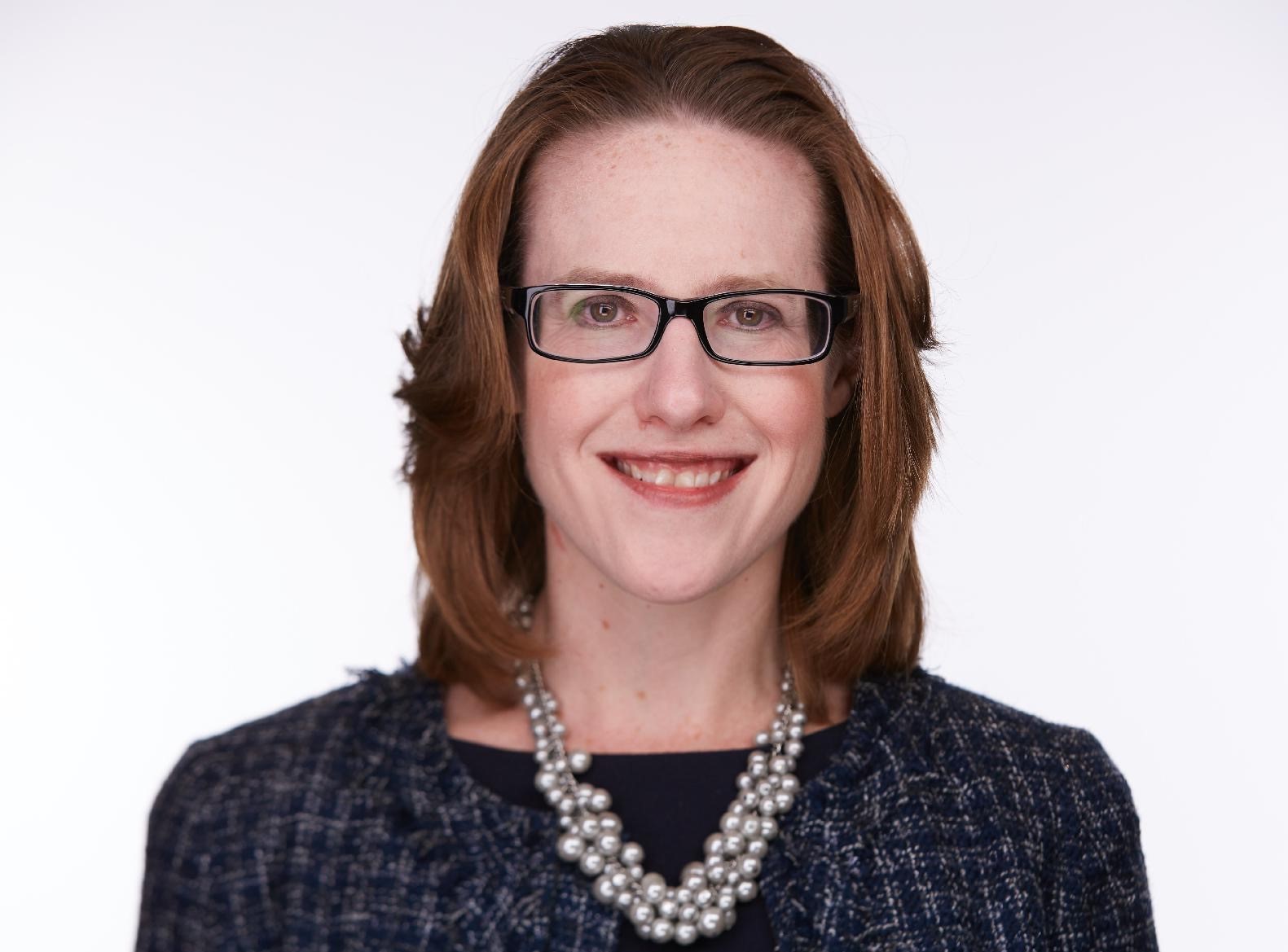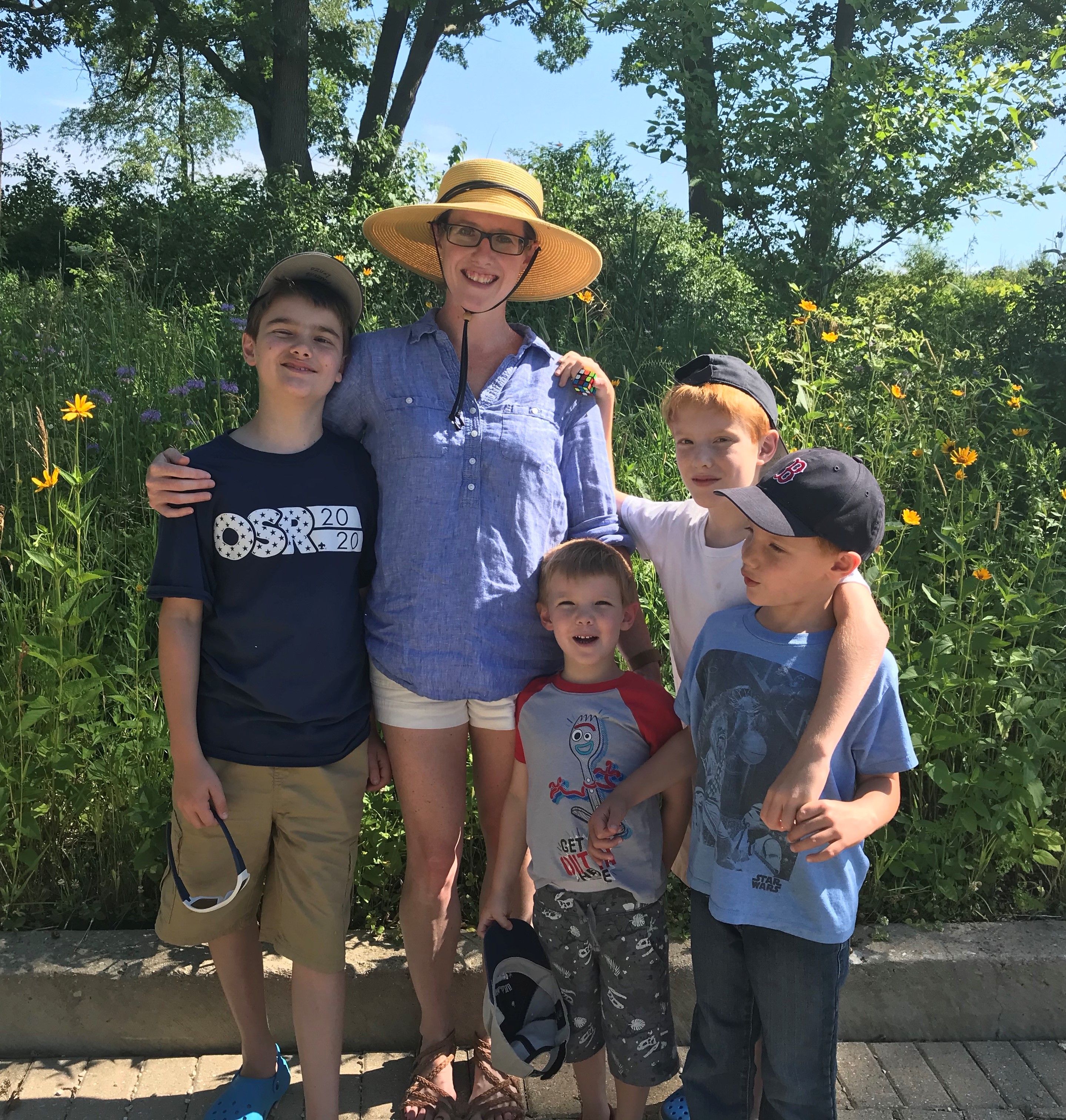Paying It Forward
From her childhood on a hog farm in rural Iowa to Chief Investment Officer of the 11th largest nonprofit health care system in the United States, Leslie Lenzo embodies the very diversity she champions. Advocate Aurora Health, which has about $14 billion in assets under management, was created by the 2018 merger of Advocate Health Care, the largest healthcare system in Illinois, and Aurora Health Care, the biggest healthcare system in Wisconsin. Today, the organization, which had revenues of $13 billion last year, has 26 acute-care hospitals, 500 outpatient locations, 5,000 affiliated physicians, and 75,000 employees.
From her home office in Downers Grove, Illinois, where Lenzo has been working remotely, she tells Hightree Advisors Principal and Senior Advisor Lisa Laird how her family, the pandemic, and Advocate Aurora Health’s culture have factored into her active pursuit and celebration of diversity of thought and skill.
LISA: Let’s start with Advocate Aurora’s various portfolios. Can you describe the different pools your team oversees?
 LESLIE: The vast majority of assets that we manage are in our long-term pool -- upwards of $10 billion at this point – and then we also have two defined benefit pension plans. Both of those are frozen plans. They’re both managed with an LDI strategy, so they’re very different from our long-term portfolio, which is much more endowment-like.
LESLIE: The vast majority of assets that we manage are in our long-term pool -- upwards of $10 billion at this point – and then we also have two defined benefit pension plans. Both of those are frozen plans. They’re both managed with an LDI strategy, so they’re very different from our long-term portfolio, which is much more endowment-like.
We also have two captive insurance portfolios; a liquidity reserve portfolio; and more recently, we’ve added what we call our corporate ventures (which are healthcare investments), and place-based investments into our local communities via below-market rate loans to Community Development Financial Institutions.
Supporting all of that, we have a team of 10. We have three senior investment professionals who, along with a deputy, each manage a slice of those portfolios and then a three-person operations team who we couldn’t live without.
LISA: What are you most excited about at Aurora Advocate these days?
LESLIE: One of our big initiatives is diversity, equity, and inclusion (“DEI”). We have had a heavy focus on DEI for the past three or four years and now feel like we have really hit our stride. We are fervent believers that diversity of thought leads to better investment processes and better investment outcomes, so that’s something we’re incredibly excited about.
LISA: I want to talk about how your upbringing informs your thinking about bringing more people into our space.
LESLIE: I grew up an Iowa farm girl. The closest town was about five miles away; the population of that town was about 165 people when I was growing up. It was definitely not an environment where I would have known anything about markets and investing had it not been for my grandparents.
The grandparents on my mom’s side had set up a custodial account for me when I was young and populated that account with blue-chip stocks. The grandparents on my dad’s side enjoyed investing in equities. They did not have any professional training in investments (they were farmers), but they loved to read about investing, particularly Investor’s Business Daily, and I’d often watch Wall Street Week with them as a child.
When I was in high school, I went on a 4-H trip to Washington, D.C., and absolutely loved it. I came home and told my parents and teachers, “I’m going to go to Georgetown University!” I remember one of the teachers at school saying, “That’s kind of far away. Don’t you think that you should go to community college for a couple years first?” That was illustrative of the environment in rural Iowa: It was very unusual to dream of going to college out-of-state and particularly to a college that was half a continent away. It was at Georgetown, though, that I first formally encountered and became fascinated with economics and finance.
LISA: I know your grandparents influenced you. Are there other influencers in your life?
LESLIE: When I was going through the MBA program at Boston University one of my professors was Zvi Bodie who literally wrote the book on “Investments.” I ended up taking several of his courses, including a PhD-level Investments course, and his teaching solidified in my mind that investing was what I wanted to do for my career.
LISA: How do we reach people who don’t have the benefit of being exposed to markets at a young age?
LESLIE: That’s a big part of the dilemma. You see groups like Girls Who Invest, Toigo, and SEO, whose mission is getting the word out and helping young people understand that investing exists as a career path, but even as these groups proliferate, they still don’t touch nearly as many lives as is needed. That’s a real challenge in a country like ours where financial literacy isn’t taught in schools. Hopefully as this topic gets more legs, there’ll be more people thinking about investing and taking steps to have those conversations with young people at earlier stages in their lives.
LISA: Let’s talk about diversity among your team members.
LESLIE: The team is comprised of people from a variety of backgrounds spanning gender, ethnicity, educational background. The profile we are lacking is a white male from an Ivy League school with an investment banking background. Hmm …. maybe this is the background we need to add next to bring more diversity of thought onto the team. We’ve definitely looked in unconventional areas to find our team members and the result is an absolutely spectacular team.
LISA: How have you been able to make investment decisions in an era of COVID where people are not wandering into each other’s offices or cube spaces to have those casual conversations that turn out to be so valuable?
LESLIE: You have to be intentional about it. I’ve always had standing meetings on the calendar with my direct reports and biweekly staff meetings, but in the time of COVID we have added additional touchpoints. We do a monthly investment leadership meeting where we talk high level about the portfolio; the different sub-teams all have weekly touchpoints with one another; and we are not shy about pinging each other via MS Teams.
Now that things are starting to open up and we’re all vaccinated, we have added monthly in-person leadership meetings that are several hours in length. We actually had our first one this morning - the leadership team came over to my house and we spent three hours outside sitting on my porch, going through every topic you can think of – from staffing and career development for our junior folks to how we interface with our accounting and our tax teams, to technology, to talking about some of the changes that we want to make in the portfolio.
LISA: What are you most proud of having accomplished in your role as Chief Investment Officer?
LESLIE: Coming through 2020 unscathed made us very proud. If there was any time when what we do was so critically important to the mission of our organization, that was it. We had liquidity available for the organization if needed, and when we saw things were starting to turn operationally such that this liquidity would not be needed, we were able to rebalance the portfolio and earn a nice return for the organization: It just makes us feel so wonderfully proud that we can support the mission of the organization.
Beyond that, it’s getting into some of these other areas like the corporate ventures, like DEI and like the community investments. These are some of the thematic areas that are relatively new to us over the course of the last several years, but they have multi-year legs and we’re only in the very beginning innings. We’re excited about continuing down these paths.

LISA: What’s it like managing your four children (four sons aged 12, 11, 8, and 5), and having the job that you have?
LESLIE: I think it’s all about figuring out the life hacks that work for you. We have a fantastic nanny. She’s been with us for seven years, and she’s a substitute mom. The kids know that they can go to her with anything and will be treated exactly the same way that I would treat them. There are other life hacks that I’ve discovered over time. For example, I love HelloFresh and Sun Basket. My husband and I do that almost every night because the ingredients and recipe are there, it takes me 20 minutes to make it, and we have a delicious, healthy meal.
LISA: Tell me about the culture at Advocate Aurora Health.
LESLIE: A core tenet of the culture of legacy Advocate Health Care is work-life balance. Advocate is a faith-based organization, which you can see in everything the organization does and how we treat our people. Being part of Advocate has always felt like being part of a family.
My initial interview for the role was actually supposed to be on the due date for the birth of my third son. I said, “I’m sorry, I really can’t come in that day.” I explained why, and they were so fantastic about it. They said, “How long do you need, two months, three months?” I said, “Give me six weeks max, and I’ll be there,” and I went in for the interview.
It was an all-day interview, and I was a nursing mom. They set me up with a locked conference room that had lots of water and snacks and put breaks in the interview schedule for pumping. I felt like they understood the whole being of who we are as human beings and they’re willing to accommodate that. I’m very loyal to the organization because that’s the approach that they took, and I try to offer that same approach for everyone on my team.
LISA: How have these experiences shaped your thinking about the diversity, equity, and inclusion initiatives that you are so excited about?
LESLIE: I think a lot about diversity within the investment program and it’s multi-faceted. It’s about diversity of thought and diversity of experiences as much as it is about gender diversity and cultural diversity. For example, you may have a venture capital or growth equity manager that’s predominantly white and male but perhaps they’re sourcing for deals in the Midwest as opposed to in Silicon Valley or New York. That’s a form of diversity, too. Separately, many institutional investors are so wedded to the fundamental model of investing. In my mind there’s absolutely a place in the portfolio for fundamental investing, but I like to diversify that with some quantitative investing because different styles of investing will be in favor in different market environments.
Diversity is about looking at a variety of different types of perspectives. I really subscribe to the idea that there’s no free lunch other than diversification, and diversification is often found in people who bring diverse perspectives.
To discuss the content of this article, further engage with the author(s), or gain access to like content Join The Conversation Here if you are a member of the group, or Request Membership.
